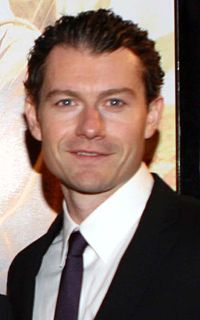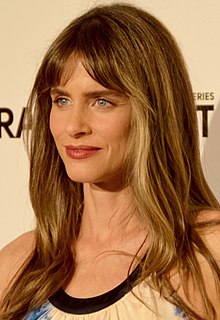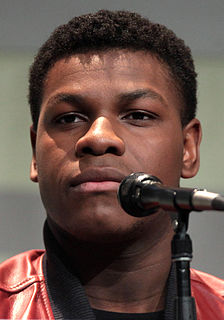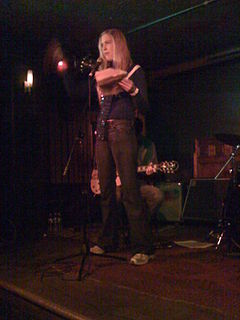A Quote by Marc Forster
On 'Stranger Than Fiction,' the script was so good that I stuck to every line because it was just such brilliant writing from Zach Helm that I felt like I really just want to shoot the page.
Related Quotes
As we were negotiating, I didn't have a script. Once the deal is closed, they let you read the script. So, I got the script and was reading it like, "Oh, please be good!," because I'd already signed on the dotted line. And I read it and just went, "Okay, I'm going to be okay. Thank god!" It was a really funny, moving story.
Mark and jay Duplass really like to improvise. Even if we beg them to go back to the script, they invariably ask us to go "off the rails," as they like to call it. It's just the way they work. You get a full written script. And it's really, really, really good, so that's why it's kind of peculiar that they always want you to improvise, because if I wrote something that good, I would want everyone to stick to the dialogue that was written.
I just couldn't believe that it [Into the Forest script] had fallen into my lap, because I felt so incredibly connected to my character, and I understood her, and I really...I haven't had that feeling about a script since I had read Thirteen or The Wrestler when I was just like, "No one else can do this." I just feel so passionate about it.
I was a lot dumber when I was writing the novel. I felt like worse of a writer because I wrote many of the short stories in one sitting or over maybe three days, and they didn't change that much. There weren't many, many drafts. That made me feel semi-brilliant and part of a magical process. Writing the novel wasn't like that. I would come home every day from my office and say, "Well, I still really like the story, I just wish it was better written." At that point, I didn't realize I was writing a first draft. And the first draft was the hardest part.
When I'm writing, it's about the page. It's not about the movie. It's not about cinema. It's about the literature of me putting my pen to paper and writing a good page and making it work completely as a document unto itself. That's my first artistic contribution. If I do my job right, by the end of the script, I should be having the thought, 'You know, if I were to just publish this now and not make it . . . I'm done.
I don't want to write poems that are just really clear about how I'm aware of all the traps involved in writing poetry; I don't want to write fiction that's about the irresponsibility of writing fiction and I've thrown out a lot of writing that I think was ultimately tainted by that kind of self-awareness.
I would rather not write if I'm depressed, or am going through a breakup, or I've had some disappointment, or I'm having a family issue. You don't want to just put out an open wound. Sometimes that just isn't even really good writing. Good writing should be good writing and storytelling and not just therapy or someone's personal journal.




































